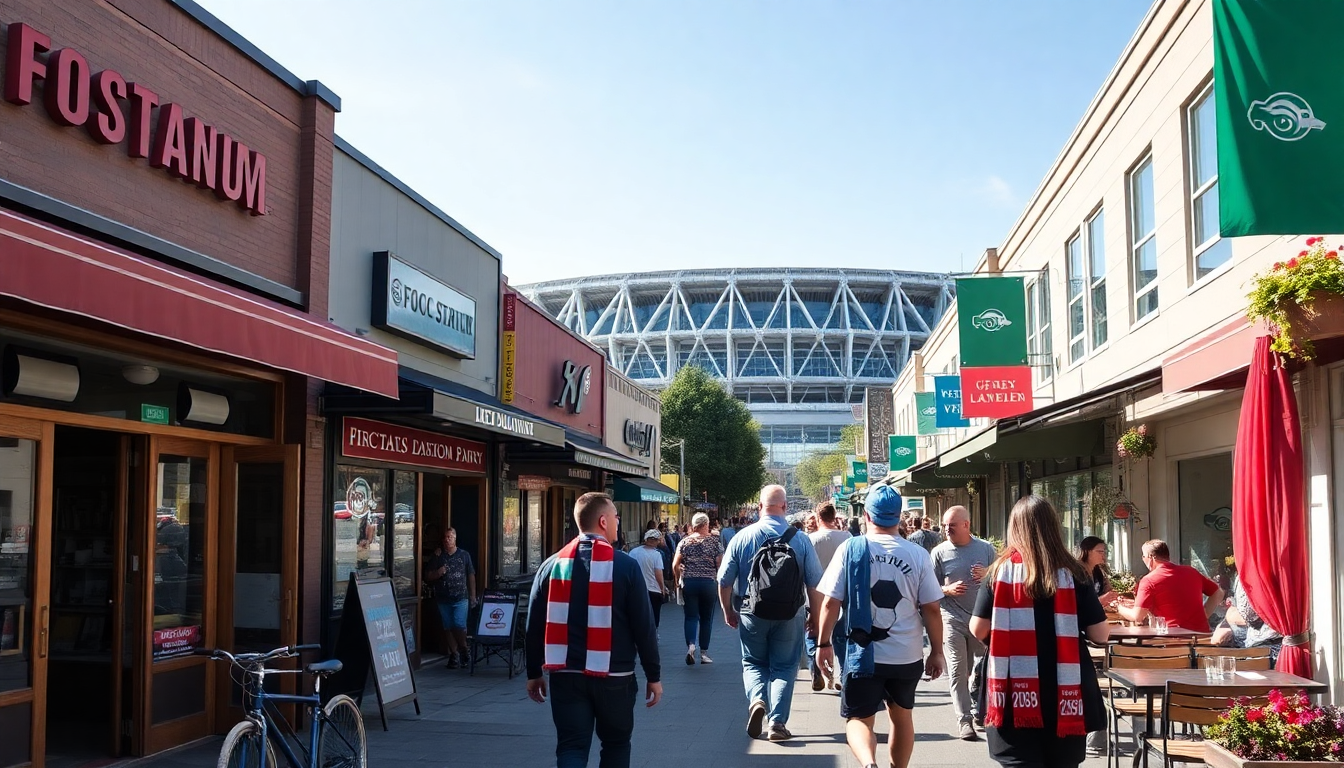Table of Contents
The upcoming FIFA 2026 World Cup is creating quite a buzz in the City of Vancouver, with many hoping it could lead to a significant economic boost. But is the reality as bright as it seems? For local businesses situated near the event’s main venue, the situation may be a bit more complex. Recent insights from the Host City Agreement, which outlines the rules governing the event, suggest that the excitement might come with some unexpected challenges for those eager to cash in on the influx of visitors and fans.
Understanding the Host City Agreement
The Host City Agreement is a crucial document that shapes the relationship between FIFA and the host city. It contains various clauses that could have a profound impact on local commerce. One particular stipulation requires the creation of a “controlled area” around the stadium, imposing restrictions on commercial activities—especially during match days and the days leading up to them. Imagine this: local businesses banned from selling food, beverages, and souvenirs—all to protect the interests of FIFA’s corporate partners. How does that sound for a business plan?
This provision has sparked concern among local business owners, especially those who were counting on a surge in customers due to the World Cup. Take Ismet Yetisen, for example, the owner of Boston Pizza located right next to BC Place. He had high hopes for increased revenue during the tournament, given his prime location. Yet, the restrictions laid out in the Host City Agreement could drastically limit his business opportunities. It’s a tough pill to swallow for someone so close to the action.
Yetisen’s experience is a sentiment echoed by many local entrepreneurs. They were gearing up for the World Cup, planning extended hours and special promotions to attract guests. The idea of a controlled area potentially shutting down their operations during peak times is understandably disheartening. Who wouldn’t feel anxious in their shoes?
The Challenges Ahead for Local Businesses
While the controlled area aims to ensure safety during this high-profile event, it raises some serious questions about what that means for businesses nearby. Right now, details about the exact size and scope of this controlled area are pretty murky. The Host City Agreement allows for individual negotiations for each participating stadium. For BC Place, located in the heart of downtown Vancouver, the unique urban layout complicates matters even further. Unlike other North American stadiums that have large parking lots, the dense city environment could limit options for local businesses.
Vancouver’s Mayor, Ken Sim, has acknowledged the potential negative impacts on local commerce and stressed the need for ongoing conversations with business owners. But the reality is that measures designed for public safety could unintentionally squash the economic opportunities that the World Cup is supposed to bring. Isn’t it ironic?
On top of that, the agreement includes plans for significant road closures around BC Place, which complicates access for customers and delivery services alike. This could lead to decreased foot traffic—something that many local businesses rely on, especially during an event of this magnitude. How will they stay afloat?
Looking to the Future: Navigating Opportunities in Adversity
Despite these hurdles, there’s still a glimmer of hope for local businesses. Many owners, including Yetisen, are optimistic that negotiations with FIFA will lead to a more favorable outcome, allowing them to tap into the economic benefits of the World Cup. Being innovative and adaptable will be key in navigating the challenges posed by the Host City Agreement. How can they turn obstacles into opportunities?
To soften the impact, business owners might want to explore alternative revenue streams, like partnerships with event organizers or online sales that comply with the controlled area regulations. Additionally, engaging with local government and tourism boards could open new doors for collaboration and support during this critical time.
In the end, while the FIFA 2026 World Cup presents a range of challenges for Vancouver’s local businesses, it also offers a chance for resilience and creativity amid adversity. The coming months will be crucial as stakeholders work together to maximize the economic potential while ensuring community safety and complying with FIFA’s requirements. Will they rise to the occasion?


